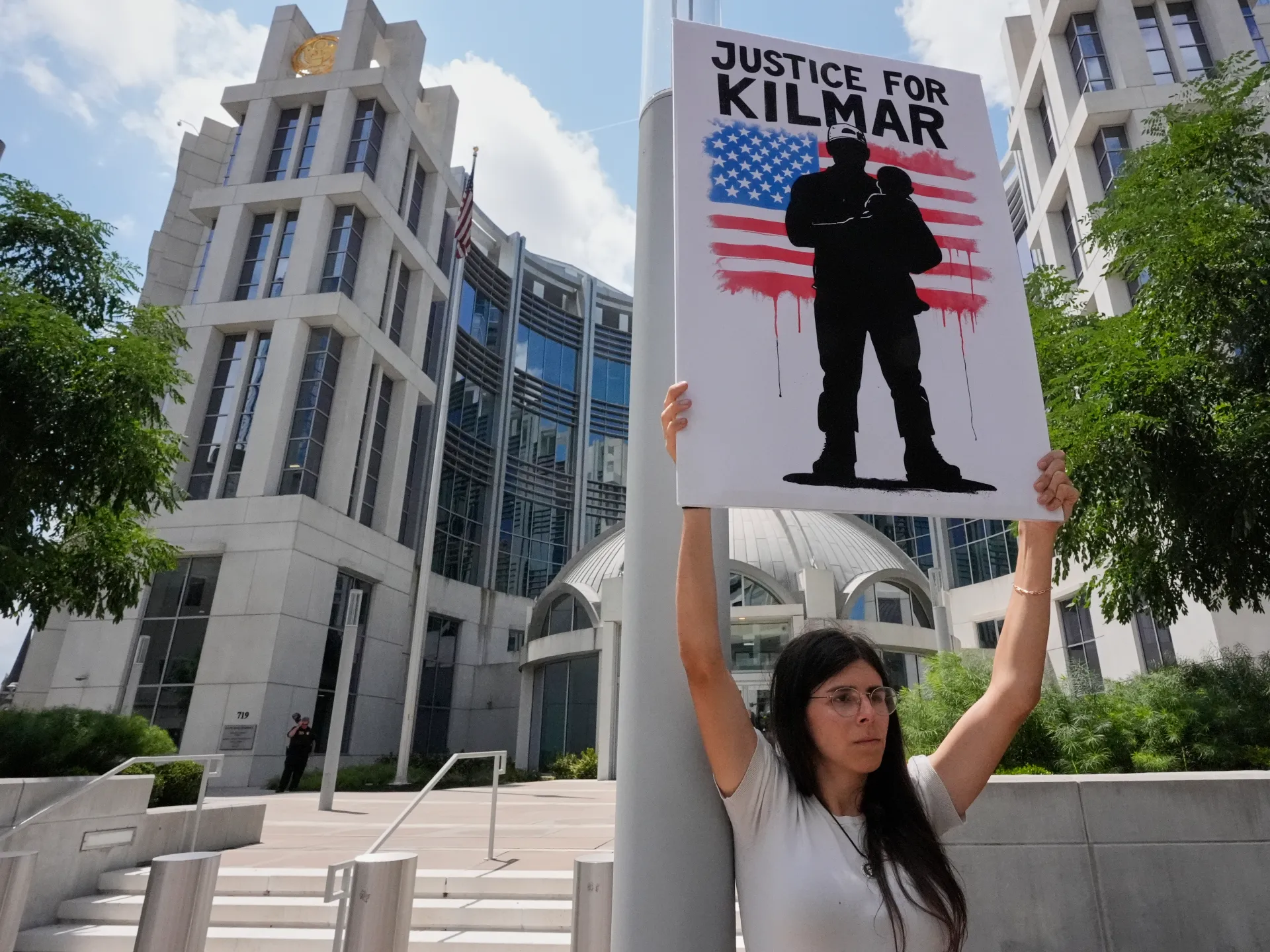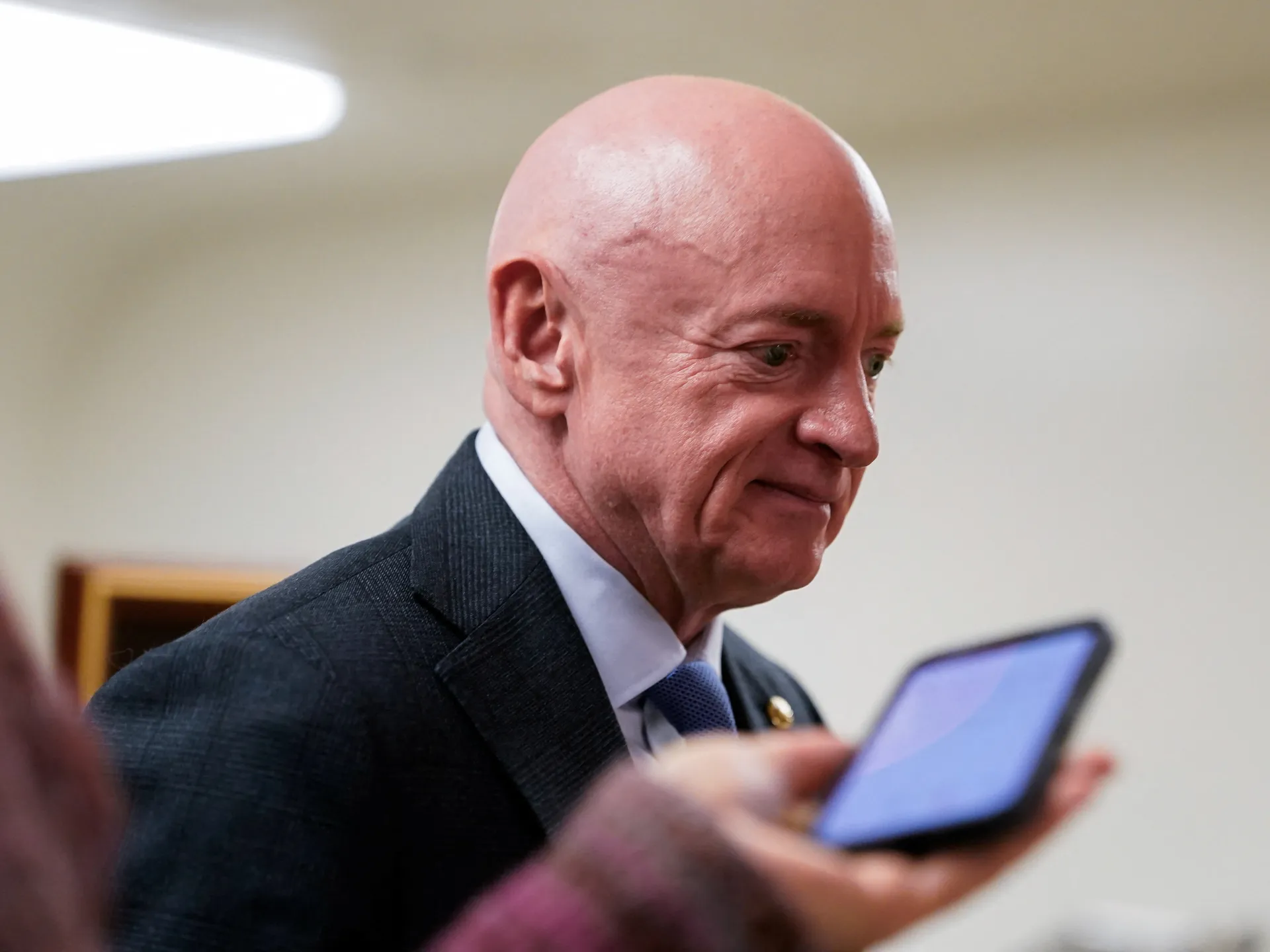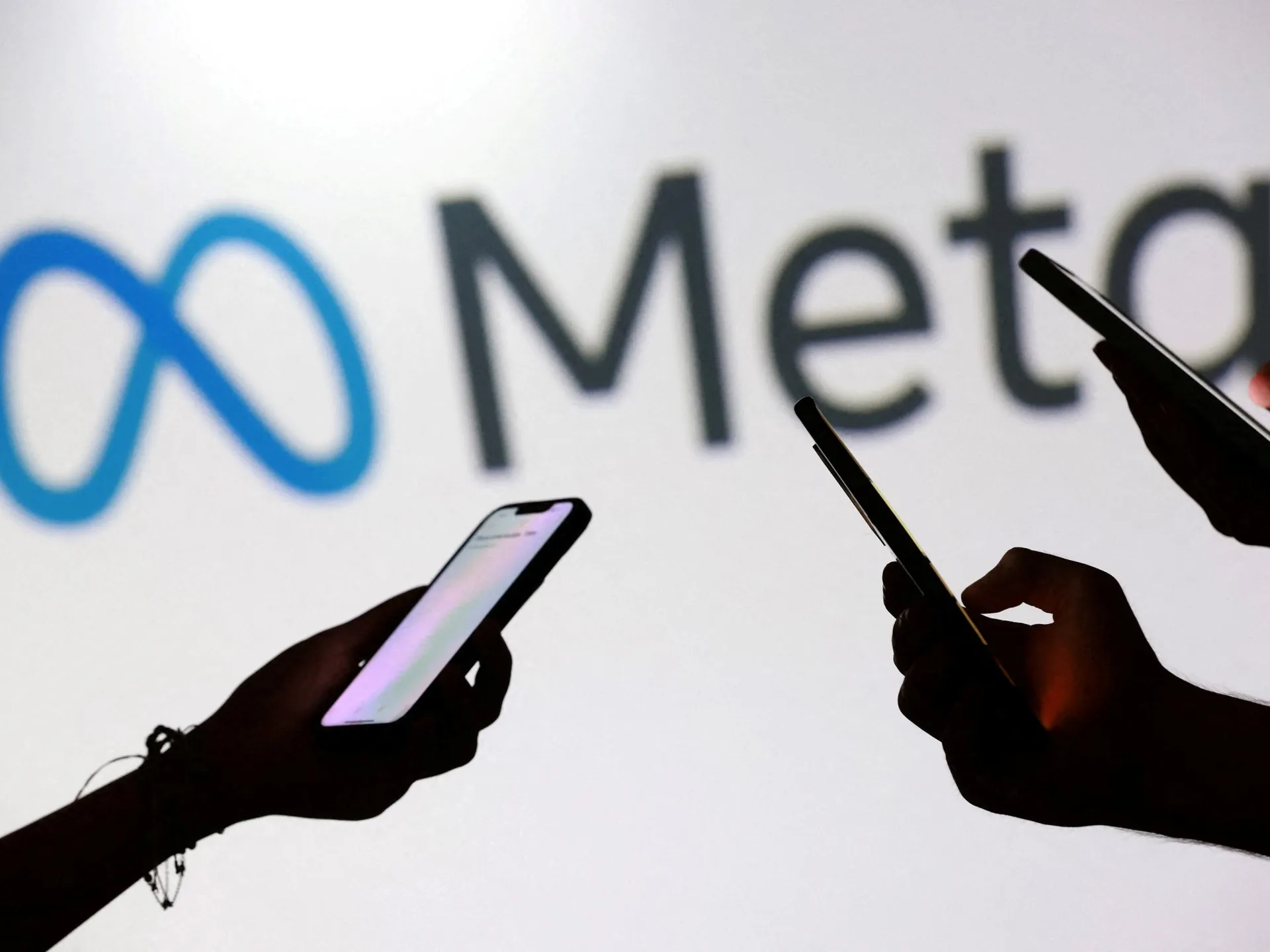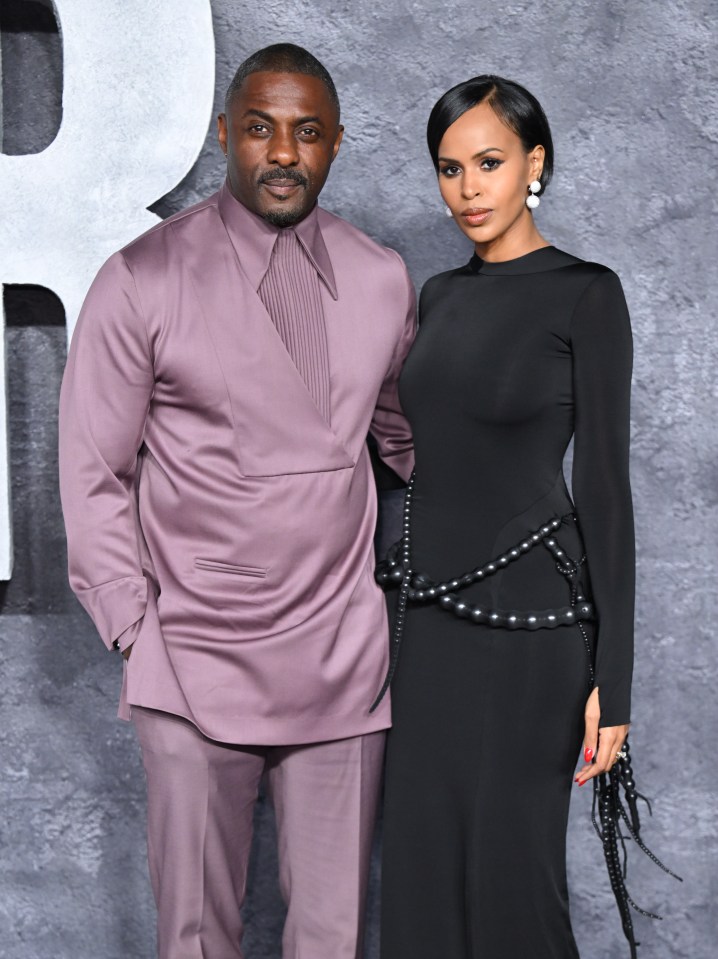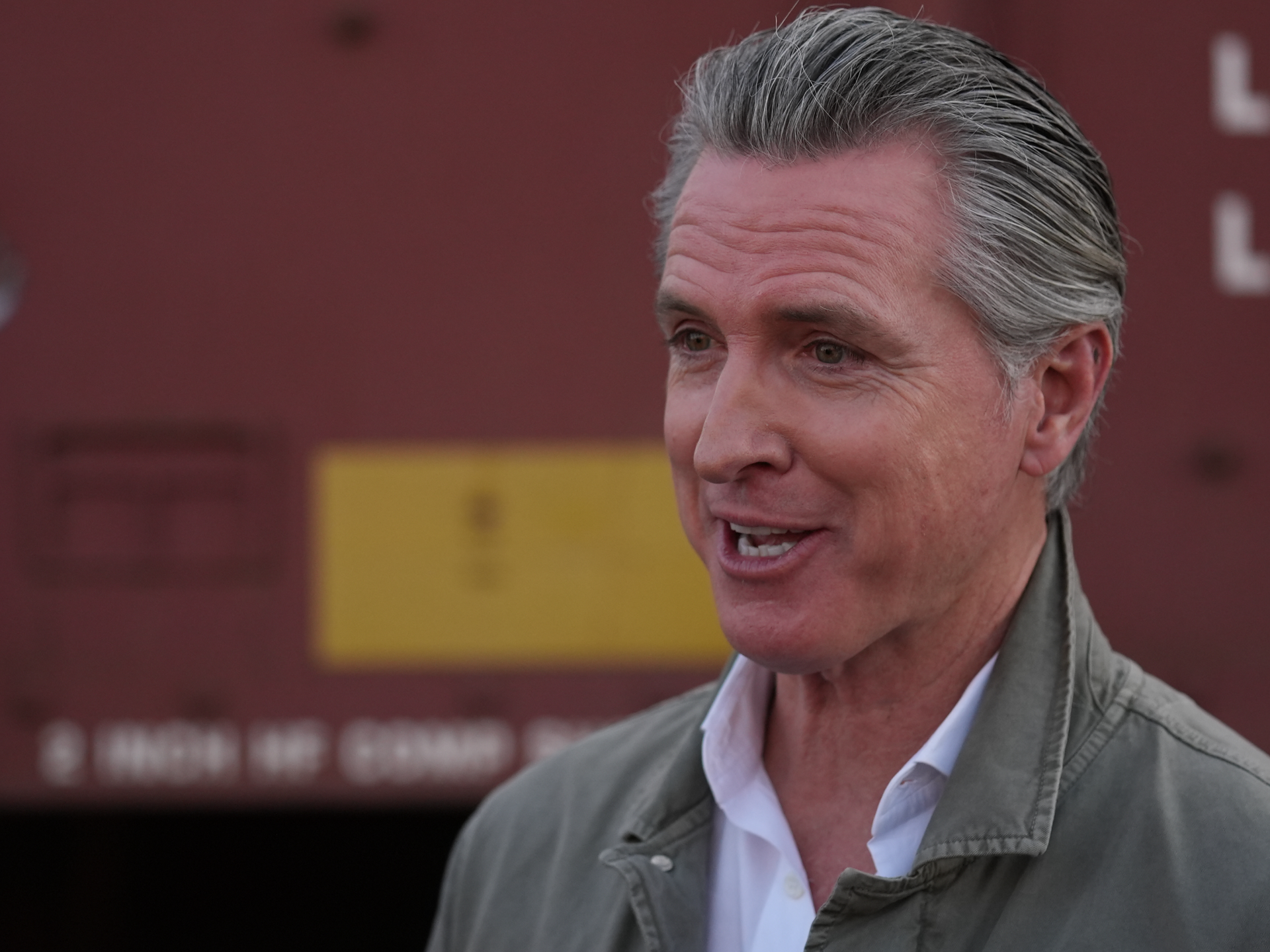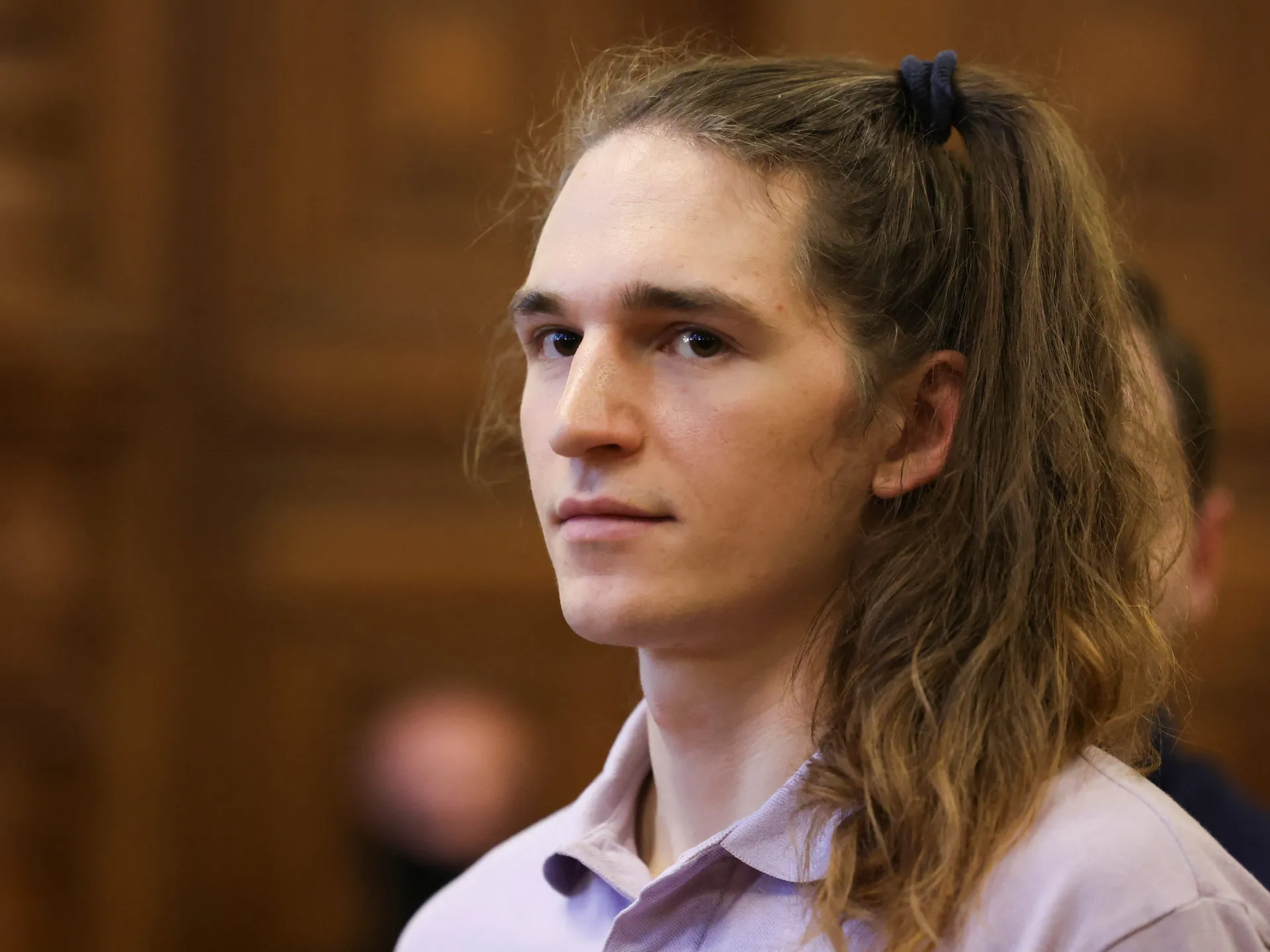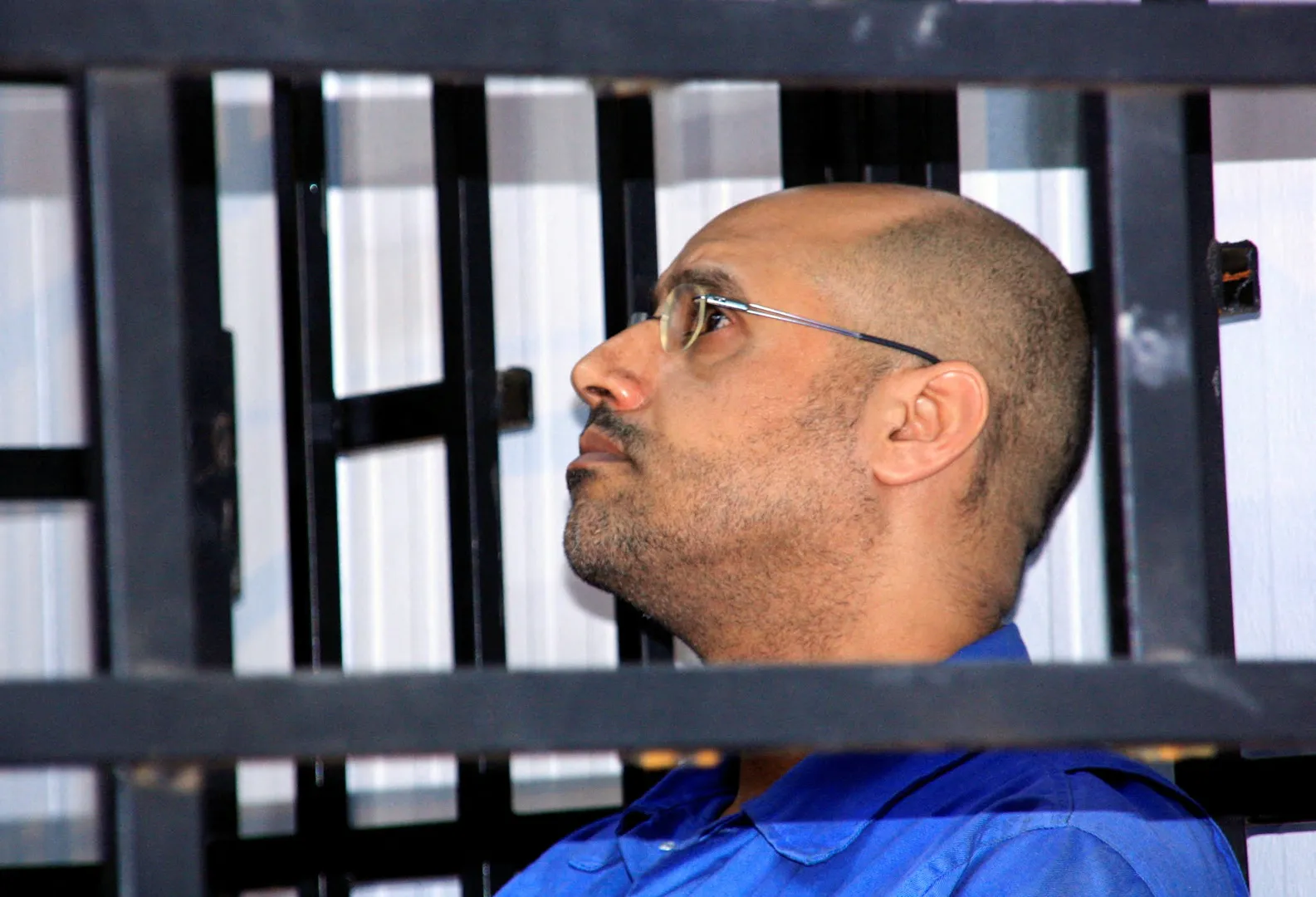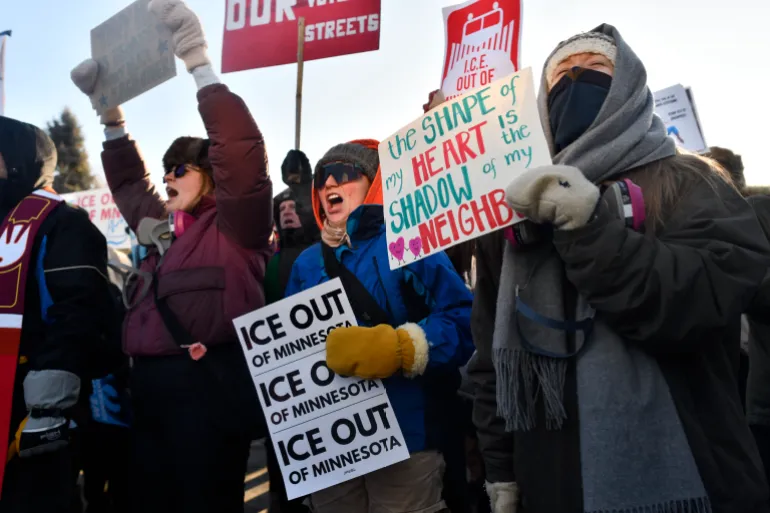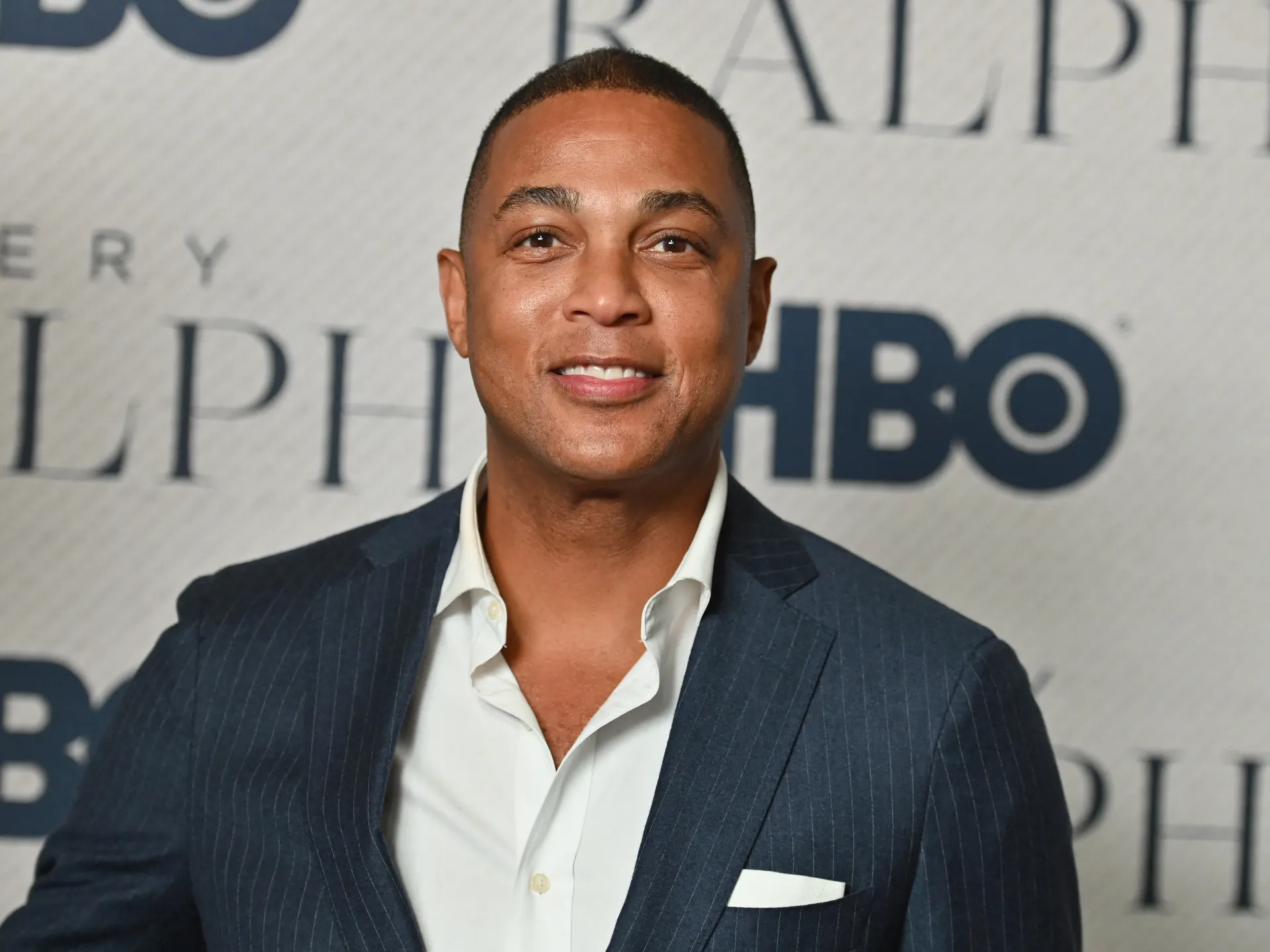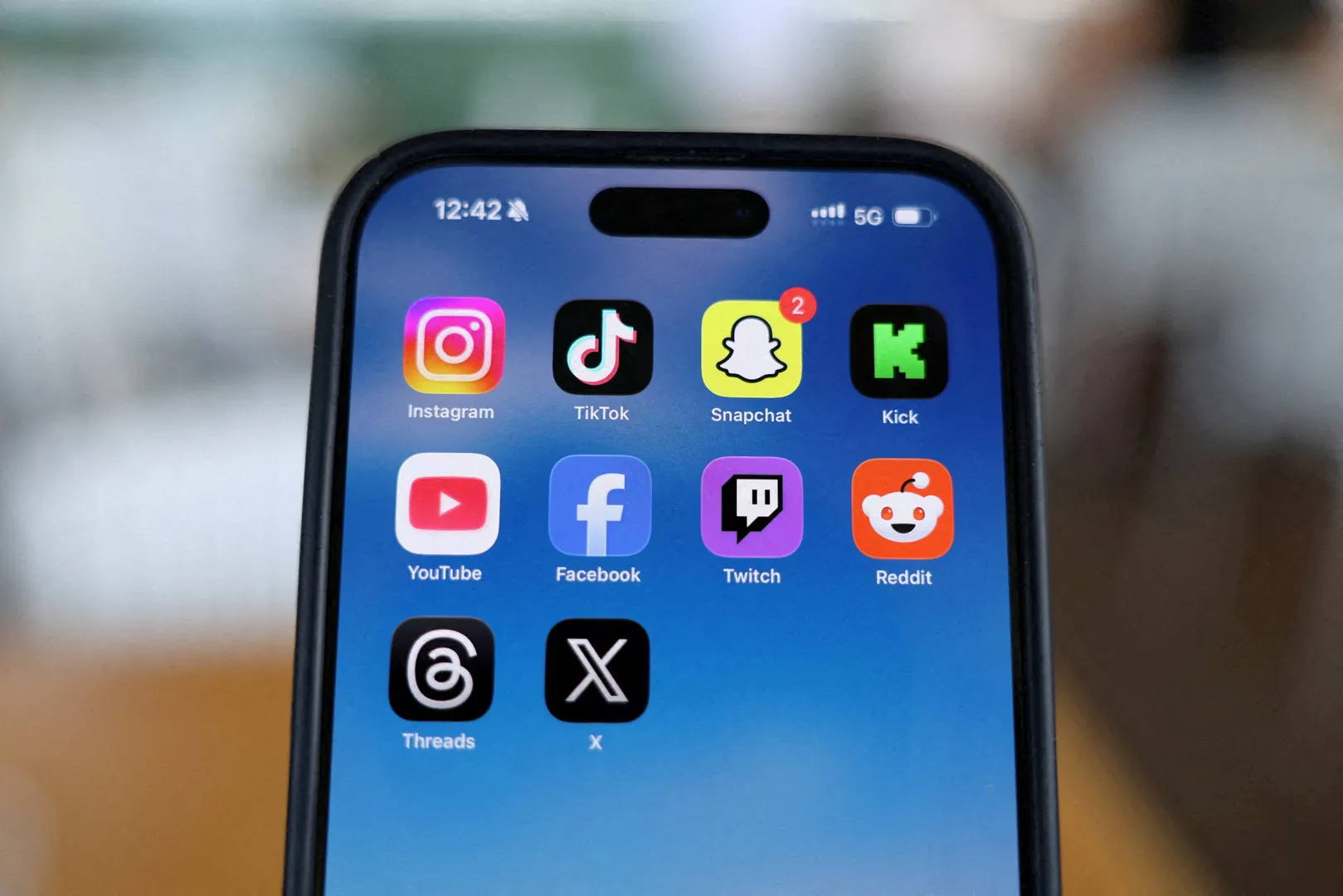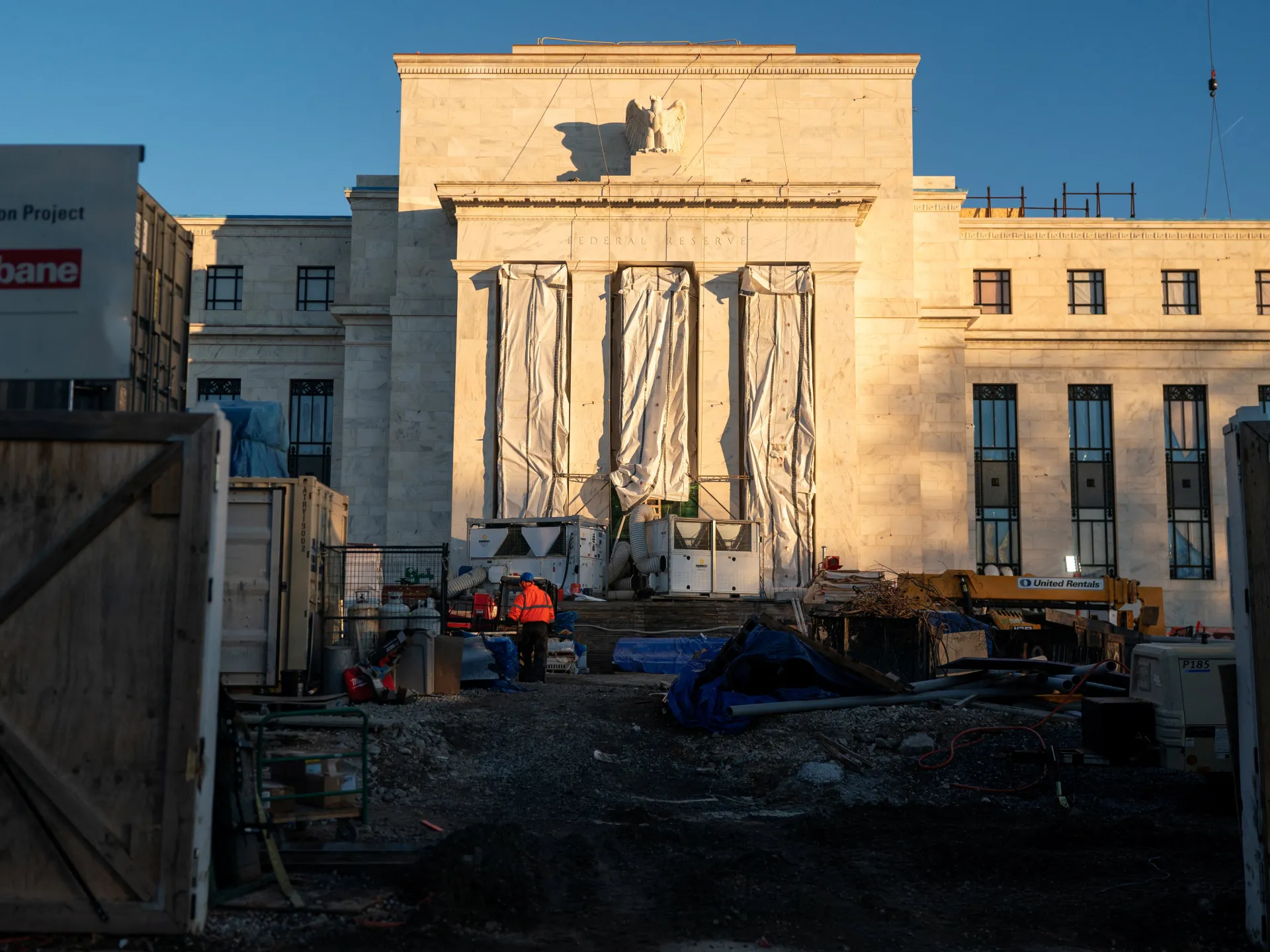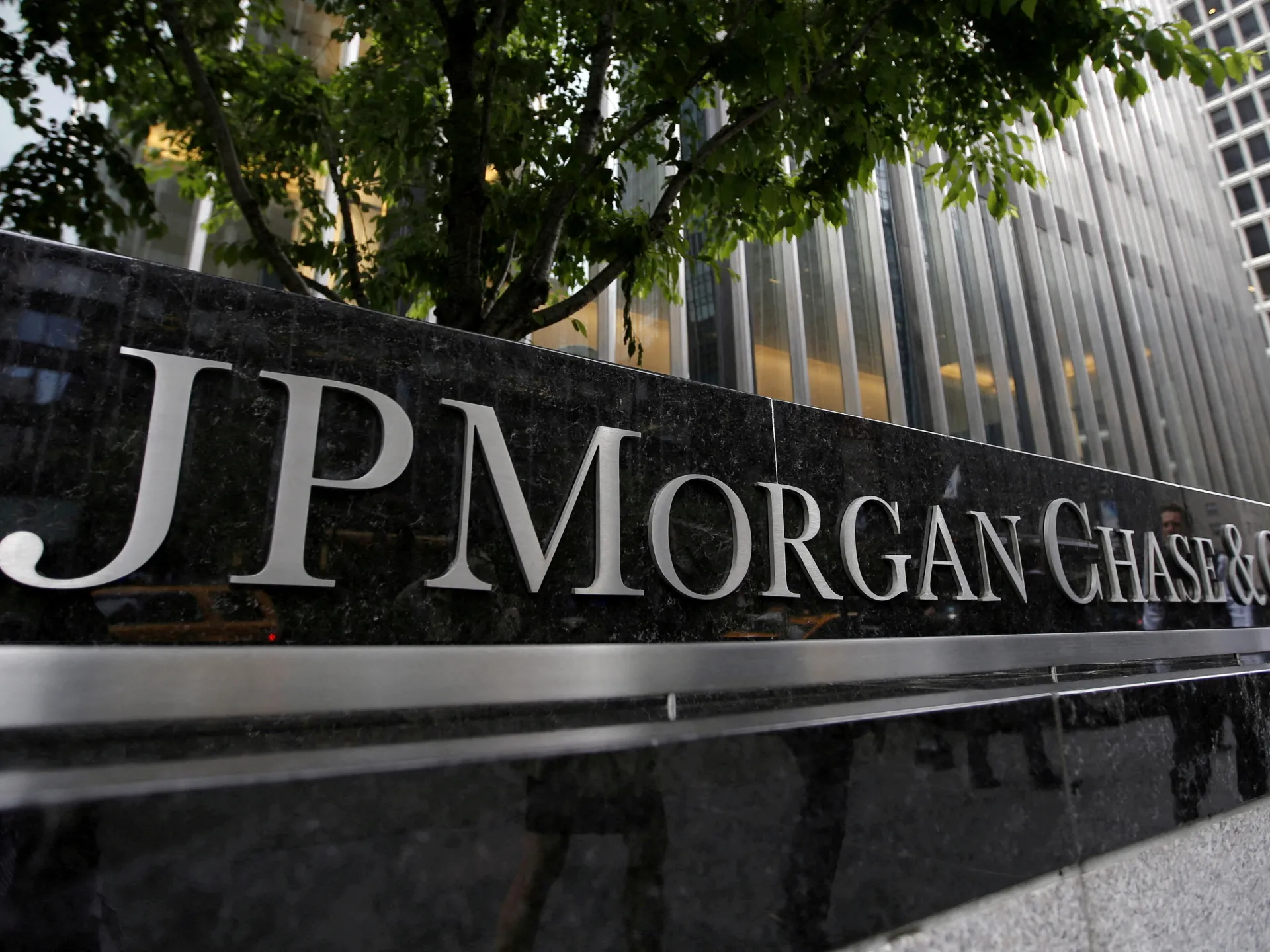United States President Donald Trump’s $5bn lawsuit against JPMorgan Chase resurfaces his accusations of debanking – the act of removing a person or organisation’s access to financial services.
The complaint, filed in a Florida court on Thursday, alleges that the bank singled him out for political reasons and closed several of his accounts following the attack on the US Capitol on January 6, 2021, which was perpetrated by his supporters.
Recommended Stories
list of 4 itemsend of list
“JPMC does not close accounts for political or religious reasons. We do close accounts because they create legal or regulatory risk for the company. We regret having to do so, but often rules and regulatory expectations lead us to do so,” the bank said in a statement.
While the lawsuit was filed in his personal capacity, the concept of debanking has long been in the crosshairs of the Trump White House.
Late last year, the White House launched a high-profile effort targeting the nation’s largest financial institutions, accusing them of closing accounts based on political bias. Within days, Trump signed an executive order restricting banks from denying accounts on those grounds.
Trump has long framed “debanking” as a systemic effort targeting conservatives. But evidence for this claim is limited.
A Reuters news agency review of more than 8,000 complaints to the Consumer Financial Protection Bureau (CFPB) found only 35 related to political or religious reasons, let alone targeting Christians or conservatives specifically.
The push by banks centres on the use of “reputational risk” as a standard that allows them to weigh the social or political fallout of doing business with a client.
Critics say this practice makes banks arbiters of morality – freezing, withholding, or closing accounts based not on financial considerations but on social and geopolitical concerns. This approach has pulled financial institutions into the middle of cultural and geopolitical debates.
While often cast as a partisan issue, data show that Trump’s core base, evangelical Christians, are not the ones typically targeted by debanking efforts.
A report from the Institute for Social Policy and Understanding (ISPU), a research organisation that looks at the experience of the US Muslim community, found that 27 percent of Muslim Americans and 14 percent of Jewish Americans have faced trouble banking, compared with negligible rates among Christian denominations, especially with Trump’s core base, evangelicals, at 8 percent.
Overall, 93 percent of Muslim Americans reported experiencing trouble with banking access. In one situation involving Citibank, the New York Chapter of the Council on American Islamic Relations (CAIR) accused the financial institution of not opening the account of a Muslim woman because of her husband, whom she wanted to nominate as a beneficiary and who is a Palestinian Muslim. CAIR did not release the name of the woman at the centre of the complaint.
“It [debanking] is a huge barrier for actually Muslims fulfilling philanthropic goals,” Erum Ikramullah, a senior research project manager at the ISPU, told Al Jazeera.
“It’s a huge barrier for the actual Muslim-based, Muslim-led organisations who are managing relief both domestically and overseas.”
Between October 2023 and May 2024, at least 30 US nonprofits providing humanitarian aid to Gaza have had accounts closed.
“Muslim Americans and Armenian Americans have faced de-banking on account of their last names,” Senator Elizabeth Warren, the Democrat from Massachusetts who founded the CFPB in 2013, said in a Senate Banking Committee hearing last year.
But Trump continues to allege that groups like Christians and conservatives are the ones discriminated against.
Among them include the National Committee for Religious Freedom, led by former Republican Senator and Kansas Governor Sam Brownback. Brownback alleges that Chase closed his account on religious grounds, a claim the bank denies.
Regardless, the push to take on the problem of debanking is a rare spot of bipartisanship in Washington, with Trump and Warren both agreeing that banks should change their ways.
Industry turmoil
A US banking regulator said last month that the nine largest US banks put restrictions on industries that it deems risky, but this has been a long-term issue for several industries.
Operation Choke Point, under the administration of former Democratic President Barack Obama, targeted exploitative industries like payday lenders and arms dealers. The initiative pushed banks to consider entire categories of businesses – and the individuals who worked in them – as reputationally risky, even when that view lagged cultural sentiment.
In response, Frank Keating, the then-CEO of the American Banking Association, slammed the move in an op-ed in The Wall Street Journal, saying that the “Justice Department [is] telling bankers to behave like policemen and judges”.
Ultimately, that scrutiny affected people working in several industries over the last decade, most particularly in adult entertainment, cannabis, and cryptocurrency.
Within months of the new guidance from the Obama administration, hundreds of adult performers lost access to banking services from Chase Bank. The ability to keep a bank account persisted for adult performers. In 2022, adult performer Alana Evans penned an op-ed for The Daily Beast describing how Wells Fargo closed her account.
The Free Speech Coalition, an adult industry trade group, found that 63 percent of adult workers have lost access to a bank account because of their work in the legal industry, and nearly 50 percent have been rejected for a loan because of the nature of the profession.
“I think that when I talk to a lot of people about this issue, or when I’ve talked to even legislators about this, they really can’t believe it, because it’s never been anything that they’ve encountered personally. The idea that a bank could shut off your account because they disagreed with the type of work you do is sort of inconceivable to most people,” Mike Stabile, the director of public policy for the Free Speech Coalition, told Al Jazeera.
The cannabis business has faced similar problems. Over the last decade, both laws and public sentiment around marijuana use have drastically changed. Now, more people use marijuana daily than drink alcohol, and recreational use is legal in 24 states as well as Washington, DC.
Yet, legitimate businesses that cater to this growing market share and those who work for them have been subject to debanking.
Kyle Sherman, the CEO and founder of Flowhub, a cannabis payment processing company, testified in front of the Senate Banking Committee last year that his employees are routinely discriminated against in consumer banking. He alleged that one of his employees was denied a mortgage because of what he does for a living, as well as others who have had their personal accounts closed.
While state laws have shifted on marijuana’s stance, federal laws have not kept up, making it harder for banks to navigate the reputational risk.
Trump recently eased pressure on the marijuana industry by reclassifying the substance as Schedule III, which means it is less harmful, but it does not change the legality of sale and interstate commerce on the federal level.
“In some of the states that have recently gone legal with recreational and medical cannabis, the individual entrepreneurs [there] were previously considered outlaws. It is hard for a banker to get over the perception that yesterday, you were an illegal activity, and today, you’re a legal activity,” said Terry Mendez, the CEO of Safe Harbor Financial, a financial services company for the cannabis industry.
There has been a bigger about-face with regard to the cryptocurrency industry. At first, crypto was seen as a safe haven for illicit transactions because the underlying technology allowed for anonymous transfers, making it difficult for banks to determine which transactions were legitimate and legal and which ones were not.
As the industry began to move into the mainstream, the challenges were amplified. Exchanges and startups faced debanking or sudden account closures, and even major platforms like Coinbase struggled to maintain reliable banking partners.
“Historically, banks were kind of more naturally averse to crypto companies, going back to like 2018, to 2020, 2021. Crypto companies would often, when registering for accounts with banks, say that they were software development companies to try and avoid the mention of crypto because of fear of not being able to open a bank account, which, of course, then means it’s harder to make a payroll. It’s hard to take in funds from investors; you can’t pay vendors,” Sid Powell, the CEO of the asset management firm Maple Finance, told Al Jazeera.
That was not helped by the collapse of FTX, the notorious cryptocurrency exchange, pushing banks to pull back from working with the crypto industry.
Sentiment is shifting now. Under Trump, who has embraced crypto, financial regulators last year withdrew guidance that suggested that banks should be careful when working with the crypto industry. Powell says the executive order could help crypto avoid debanking in the future.
“It [the executive order] kind of signals to the FDIC and the OCC that they should act in a more balanced way when it comes to crypto companies and crypto startups, instead of taking a more hostile approach, or the approach of kind of lumping everyone in with the worst of the industry, which tended to happen post-FTX,” Powell added.
Powell was referring to the The Federal Deposit Insurance Corporation, an independent agency created by Congress to maintain stability in the nation’s financial system, and The Office of the Comptroller of the Currency, an independent bureau of the US Department of the Treasury, which charters, regulates, and supervises all national banks, federal savings associations, and federal branches and agencies of foreign banks.
Trump’s personal gripes
Trump has also accused banks of not doing business with him, the primary driver of his interest in the debanking issue.
Banks can generally refuse to create accounts for potential customers who could be deemed as high risk.
“The president’s companies have filed [for] bankruptcy repeatedly. There have been years of reporting about financial institutions’ concerns with suspicious financial activity, and the president was found civilly liable for inflating the value of his assets that served as collateral for loans from financial institutions,” Graham Steele, an academic fellow at the Rock Center for Corporate Governance at Stanford University, told Al Jazeera.
Reuters reported last year that banks gauged Trump as a financial risk due to his plethora of legal challenges after his first term, including the suit brought by E Jean Caroll, which found Trump liable for sexual abuse. He has declared bankruptcy six times.
He also defaulted on loans totalling hundreds of millions of dollars several times, including a loan to Deutsche Bank. In 2024, a New York court ruled that the president fraudulently inflated his financial worth by more than $2bn.
“Notwithstanding the fact that the president is an inherently political figure, a financial institution could reasonably rely on any of these concerns, grounded in financial and legal risks, not ‘political’ beliefs, as a basis for declining to do business with a customer,” Steele said.
That did not stop the president from pointing fingers at banking giants, including Bank of America CEO Brian Moynihan.
“I hope you start opening your bank to conservatives, because many conservatives complain that the banks are not allowing them to do business within the bank, and that includes a place called Bank of America,” Trump told the executive during a Q&A session at the World Economic Forum in Davos, Switzerland, last year.
The Trump family also sued Capital One last March. The lawsuit alleged that it debanked The Trump Organisation after Trump incited an insurrection at the US Capitol on January 6, 2021, after spreading misinformation alleging that he won the 2020 presidential election even though he had lost by a significant margin.
Trump debanks ‘liberal’ causes
Trump’s rhetoric on debanking is among his latest attempts to punish entities for political bias, while actively pushing actions that punish those who have viewpoints that oppose his own.
Trump has argued that debanking disproportionately targets conservatives and conservative-leaning businesses like firearms manufacturers. His pressure has moved the needle at Citibank. In June, it lifted its ban on banking services to gun sellers and manufacturers, a policy it put in place in 2018 after the shooting in Marjory Stoneman Douglas High School in Parkland, Florida, that left 17 people dead.
In March, his administration announced it would shut down a set of climate grants under the Greenhouse Gas Reduction Fund – known as the “green bank” – a $20bn programme created through the bipartisan Inflation Reduction Act signed by his predecessor, President Joe Biden, in 2022 to channel financing for climate projects into underinvested regions.
Environment and Protection Agency (EPA) administrator Lee Zeldin justified the decision by citing “misconduct, conflicts of interest, and potential fraud”, allegations he offered without evidence, and forced Citibank, which was holding the fund’s money for nonprofit distribution, to return the funds to the EPA.
The decision faced legal hurdles. But earlier this month, a US court of appeals allowed the Trump administration to continue axing the programme. The 2-1 ruling was decided by two judges appointed by Trump.
Last year, the White House also pressured companies seeking federal contracts to abandon diversity, equity and inclusion (DEI) programmes, which it has long portrayed, without evidence, as undermining merit-based hiring.
Citigroup, historically one of the most vocal supporters of DEI in the financial services sector, scrapped its programme. Citibank holds multiple federal contracts with agencies including the Department of Defense and the Consumer Financial Protection Bureau.
Bank of America and Wells Fargo followed suit in February, scaling back their initiatives as well, as did many other companies.
As part of the Trump administration’s immigration crackdowns, the White House has also pressured banks to cut financial services to immigrants. The administration is doing so by trying to cancel the social security numbers of migrants who have legal status in the US, which would essentially cut them off from access to basic financial services, including bank accounts and credit cards, The New York Times reported.
At the time, Leland Dudek, then the Social Security Administration’s acting commissioner and a Trump administration appointee, said the move to cut access would end their “financial lives”.
“There’s a real telling disconnect. They are saying, on the one hand, we wanna put a thumb on the scale and ensure that conservative groups are included in the financial system, while actively working to push out liberal coded groups by either freezing them out of the bank accounts when they get government grants, or trying to investigate and potentially bring criminal charges against the payment platform that serves liberal groups,” Steele said.
Steele questioned if taking on political bias would actually help communities that do not align with the Trump administration’s stated values and conservative viewpoints.
“I think one of the other concerns here is that a lot of this depends on how the executive order is going to be enforced,” Steele said.



